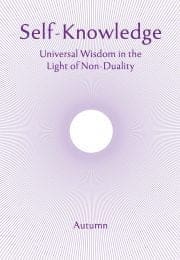Atman – the Self
Atman is not the knower and of course not the known. Atman is the ground and source of all reality and intelligibility of the Universe. It is an error to think that Shri Shankara’s philosophy of Advaita (non-duality) is subjective idealism. Deussen is wrong when he says that in the state of liberation, all plurality is annihilated and only the knower in us, and therefore Atman, remains as the unity. How little this scholar understood the conception of Atman in Shri Shankara’s philosophy.
All varied means of knowledge have Atman as their goal. When Atman is comprehended, all empirical means of knowledge are cancelled out. Atman is the bedrock of certainty. Plato’s approach of monism of the Good, is nearer to Atman than any other European guess. The arguments of Descartes regarding the existence of the Self as an absolute certainty have little in common with the explanation of Shri Shankara, to whom Atman is the essence and basis of all epistemological enquiry. Descartes says nothing definite about the nature of the Self, while the Self of Shri Shankara is identified with Blissfulness. “Atman is Brahman; Brahman is Anandam (Bliss).”
Atman is not a theological conception; it is metaphysical, its existence is self-revealed and above all proof.
When the student is bewildered and begins to doubt whether Atman is something, nothing, or the Void, when his mind surrenders before the sublimity of Atman, when all reasoning falls fatigued in its attempt to understand the fundamental Reality, the Teacher gives a thrust, a ray in the gloom of duality, with the words “Tat Twam Asi—That Thou Art.” Nowhere in any philosophy of the world, is the Truth so boldly expressed as in the dictum “Tat Twam Asi”. The pupil who has freed himself from all ignorance (avidya) and its products, and has served a teacher to acquire this clear sightedness, now cries out: ‘Aham Brahmasmi’, I am Brahman.
Critical reflection on life, called Vichara or Mimansa, is a great help in the understanding of the central Truth of Atman. ‘We live forwards, but understand backwards,’ says Kirkegaard. The mind must battle with itself in order to evolve the truth of Atman. Progressive initiations help the capacity of the mind to adjust itself to the search into Atman. The final phase of Vedanta dialectics is anubhava—experience and logic. A stick placed in a basin of water appears bent. The logic of perception will not deny its crookedness, but experience will contradict the perception. Such is Shri Shankara’s philosophy of Atman.
Vedanta is for each and everybody whose enquiring impulses have not been suffocated by love of pleasure and power. Intellectual idealism is not enough for the afflicted. The philosophy of Shri Shankara offers the fullest intellectual and moral satisfaction and something more—a vision of the whole as Atman or the Self, to end our sense of duality and the sufferings of the individual forever. Brahman is verily Anandam (Bliss).
The mind-consciousness—Jiva—cannot determine the absolute Good without discovering the source of It. From Jivatman (the individualised self) to Paramatman (the supreme Self), is the way of Vedanta; from the empirical experience of sansara to the absolute experience of Brahman.
Hari Prasad Shastri


